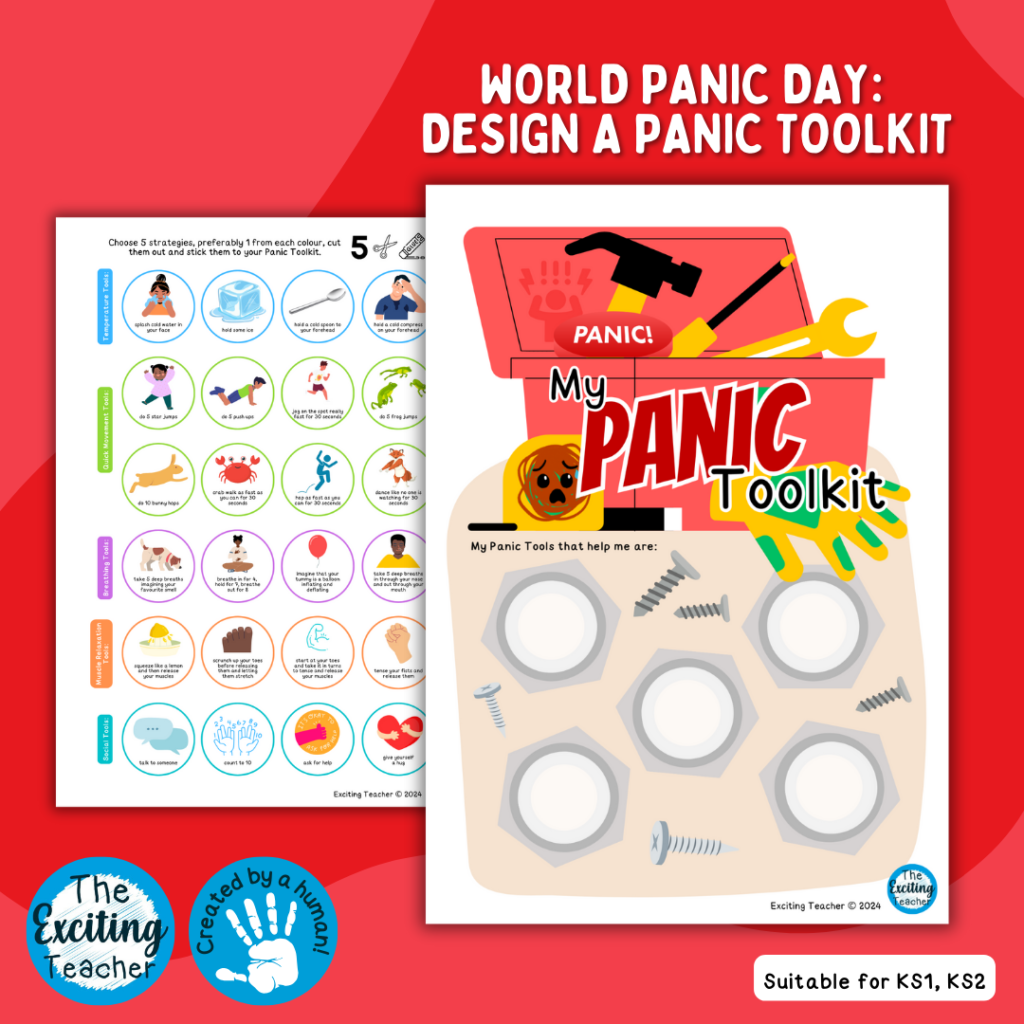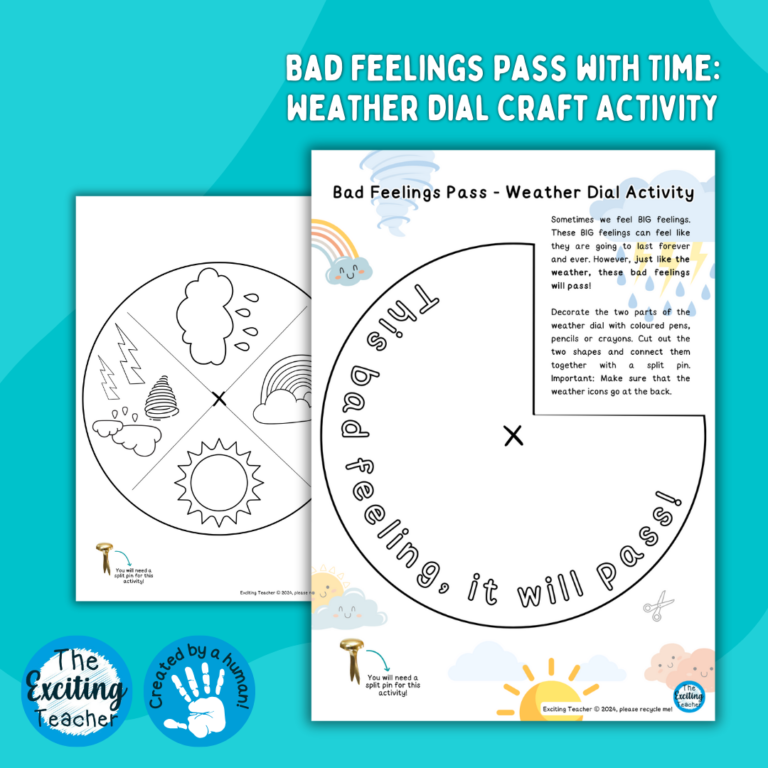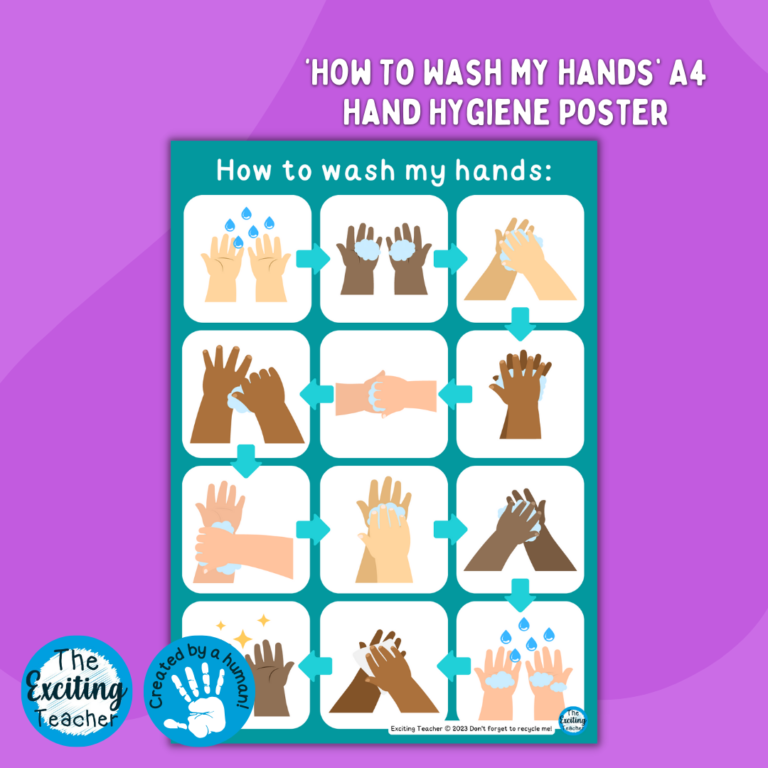World Panic Day- My Panic Toolkit 'Cut and Stick Activity' Calming Strategies (inspired by T.I.P.P Skills in DBT)

Are you looking for ways to help your child manage their panic symptoms? Look no further than Panic Toolkit resource. This tool can help children to learn to manage panic attacks when they occur.
This build your own coping strategies toolkit is specially designed to support children who are experiencing panic symptoms and help them feel more comfortable and confident in managing their feelings.
Each strategy features helpful tips, breathing exercises, calming techniques and understanding the panic cycle to help your child feel more in control when they’re feeling overwhelmed.
Whether your child is experiencing a panic attack or just feeling anxious, ‘My Panic Toolkit’ can help support them and provide them with the tools they need to cope.
These cards are also the perfect therapy resource for EMHPs, CWPs, and ELSAs to use in their 1:1 sessions.
Relevant Curriculum Links
England PSHE Statutory Curriculum Strands:
KS1:
- H11. about different feelings that humans can experience.
- H13. how feelings can affect people’s bodies and how they behave.
- H16. about ways of sharing feelings; a range of words to describe feelings.
- H17. about things that help people feel good (e.g. playing outside, doing things they enjoy, spending time with family, getting enough sleep).
- H18. different things they can do to manage big feelings, to help calm themselves down and/or change their mood when they don’t feel good.
- H19. to recognise when they need help with feelings; that it is important to ask for help with feelings; and how to ask for it.
KS2:
- H15. that mental health, just like physical health, is part of daily life; the importance of taking care of mental health.
- H16. about strategies and behaviours that support mental health — including how good quality sleep, physical exercise/time outdoors, being involved in community groups, doing things for others, clubs, and activities, hobbies and spending time with family and friends can support mental health and wellbeing.
- H17. to recognise that feelings can change over time and range in intensity.
- H18. about everyday things that affect feelings and the importance of expressing feelings.
- H19. a varied vocabulary to use when talking about feelings; about how to express feelings in different ways.
- H20. strategies to respond to feelings, including intense or conflicting feelings; how to manage and respond to feelings appropriately and proportionately in different situations.
- H21. to recognise warning signs about mental health and wellbeing and how to seek support for themselves and others.
- H22. to recognise that anyone can experience mental ill health; that most difficulties can be resolved with help and support; and that it is important to discuss feelings with a trusted adult.
Scottish Health and Wellbeing Curriculum Outcome(s):
- I am aware of and able to express my feelings and am developing the ability to talk about them. HWB 0-01a / HWB 1-01a / HWB 2-01a / HWB 3-01a / HWB 4-01a.
- I know that we all experience a variety of thoughts and emotions that affect how we feel and behave and I am learning ways of managing them. HWB 0-02a / HWB 1-02a / HWB 2-02a / HWB 3-02a / HWB 4-02a.
- I understand that there are people I can talk to and that there are a number of ways in which I can gain access to practical and emotional support to help me and others in a range of circumstances. HWB 0-03a / HWB 1-03a / HWB 2-03a / HWB 3-03a / HWB 4-03a.
- I understand that my feelings and reactions can change depending upon what is happening within and around me. This helps me to understand my own behaviour and the way others behave. HWB 0-04a / HWB 1-04a / HWB 2-04a / HWB 3-04a / HWB 4-04a.
- I understand the importance of mental wellbeing and that this can be fostered and strengthened through personal coping skills and positive relationships. I know that it is not always possible to enjoy good mental health and that if this happens there is support available. HWB 0-06a / HWB 1-06a / HWB 2-06a / HWB 3-06a / HWB 4-06a.



